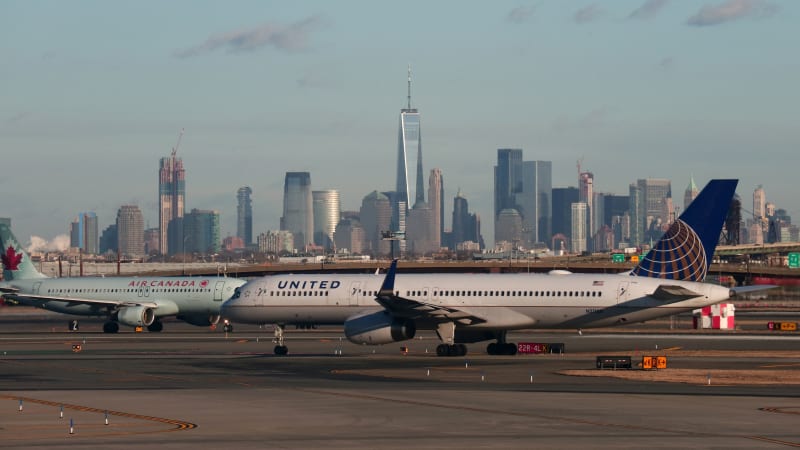
Chief executives of the nation’s largest passenger and cargo airlines met with key Biden administration officials Friday to talk about reducing emissions from airplanes and push incentives for lower-carbon aviation fuels.
The White House said the meeting with climate adviser Gina McCarthy and Transportation Secretary Pete Buttigieg also touched on economic policy and curbing the spread of COVID-19 — travel has been a vector for the virus. But industry officials said emissions dominated the discussion.
United Airlines said CEO Scott Kirby asked administration officials to support incentives for sustainable aviation fuel and technology to remove carbon from the atmosphere. In December, United said it invested an undisclosed amount in a carbon-capture company partly owned by Occidental Petroleum.
A United Nations aviation group has concluded that biofuels will remain a tiny source of aviation fuel for several years. Some environmentalists would prefer the Biden administration to impose tougher emissions standards on aircraft rather than create breaks for biofuels.
“Biofuels are false solutions that don’t decarbonize air travel,” said Clare Lakewood, a climate-law official with the Center for Biological Diversity. “Real action on aircraft emissions requires phasing out dirty, aging aircraft, maximizing operational efficiencies and funding the rapid development of electrification.”
Airplanes account for a small portion of emissions that cause climate change — about 2% to 3% — but their share has been growing rapidly and is expected to roughly triple by mid-century with the global growth in travel.
The airline trade group says U.S. carriers have more than doubled the fuel efficiency of their fleets since 1978 and plan further reductions in carbon emissions. But the independent International Council on Clean Transportation says passenger traffic is growing nearly four times faster than fuel efficiency, leading to a 33% increase in emissions between 2013 and 2019.
The U.S. accounts for about 23% of aircraft carbon-dioxide emissions, followed by Europe at 19% and China at 13%, the transportation group’s researchers estimated.
The White House said McCarthy, Buttigieg and economic adviser Brian Deese were “grateful and optimistic” to hear the airline CEOs talk about current and future efforts to combat climate change.
Nicholas Calio, president of the trade group Airlines for America, said the exchange was positive.
“Airlines are ready, willing and able partners, and we want to be part of the solution” to climate change, Calio said in a statement. “We stand ready to work in partnership with the Biden administration.”
